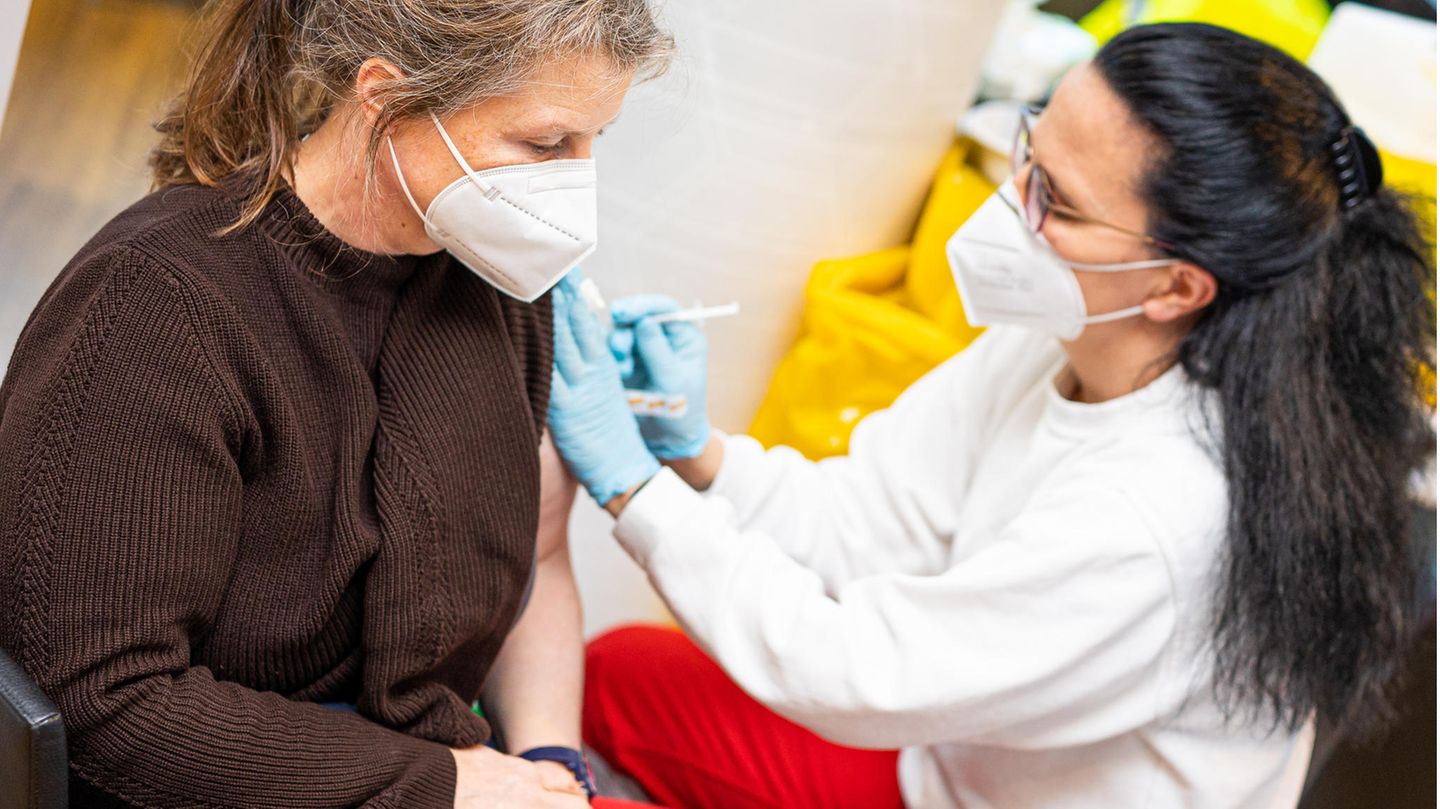There can and should not be a compulsory vaccination. That was the general opinion until a few weeks ago. With the new pandemic, the attitude of many politicians has changed – but not all.
Angela Merkel, Olaf Scholz, Jens Spahn – they and many other politicians had categorically ruled out a general vaccination obligation. “There will be no compulsory vaccination,” was the tenor. With the recent pandemic developments, however, the tone has changed. The recently incumbent health minister Karl Lauterbach (SPD) believes “we will not make it without a vaccination”. In Anne Will’s political panel, he admitted that politics had to change the position it had taken up to now. Lauterbach also spoke out against mandatory vaccination on Twitter in March.
Most recently, the German Ethics Council recommended expanding the statutory corona vaccination requirement to include larger parts of the population. The expansion can be justified if it can mitigate or prevent “serious negative consequences” of future pandemic waves, according to a statement submitted on Wednesday at the request of the federal and state governments. So far, there has only been a corona vaccination requirement for certain occupational groups, for example in the care and health sector – at the beginning of 2022, however, the Bundestag should decide on a general vaccination requirement.
The new virus variant Omikron urges vaccination
In politics, cross-party voices are increasing in favor of the introduction of a general compulsory vaccination against the corona virus. The SPD chairman Lars Klingbeil told the newspapers of the editorial network Germany (RND) that he had previously believed that “many more people will be vaccinated than is actually the case to date.” He therefore said “always very convinced” that there would be no compulsory vaccination. “That was a mistake.” Klingbeil urged people to be vaccinated and boosted. If the vaccination quota were to suddenly increase from the current 70 percent in Germany to 95 percent, the planned introduction of mandatory vaccination would not be necessary, he said. “I don’t see that at the moment.”
North Rhine-Westphalia’s Prime Minister Hendrik Wüst (CDU) said in the ARD “Tagesthemen” on Wednesday evening that the mandatory imprint was “essential” – “otherwise we will always get into the loop of loosening and lockdown”. There was encouragement from the SPD and the Greens. In the FDP, however, resistance arose.
The parliamentary manager of the Greens in the Bundestag, Irene Mihalic, called on the members of the Bundestag to quickly get the general corona vaccination in place. Especially in view of the much more contagious Omikron variant, the Bundestag must act “quickly”. “From my point of view, it can not be about whether, but only about how a vaccination is compulsory,” she told the “Neue Osnabrücker Zeitung” (NOZ). “The parliamentary process must be based on this principle,” said the Green politician of the NOZ. All the democratic forces in the Bundestag are asked to “play a constructive and problem-conscious way”.
Doctors have repeatedly emphasized that effective protection against the new Corona variant is only possible with booster vaccinations. Initial studies show that an infection with the Omikron variant is less severe on average than with the delta variant that has prevailed up to now – however, the significantly higher infectivity threatens to overload the health system more quickly and thus even more deaths.
Three motions for compulsory vaccination in the Bundestag
According to information from the “Rheinische Post”, at least three motions to vote from the parliamentary groups are planned in the coming year to introduce a general compulsory vaccination. The newspaper reported, citing parliamentary circles, that there should be an application that advocates the general compulsory vaccination from the age of 18 and another application that only provides for citizens over 60 years of age to be vaccinated. The MPs followed the “Rheinische Post” recommendations of the ethics council. In a statement, 20 of 24 council members had advocated compulsory vaccination, but seven of them advocated compulsory vaccination only for particularly vulnerable groups, such as those over 60 years of age.
“The fact that only around half of the council members vote for a general compulsory vaccination from the age of 18 is remarkable in view of the media-public debate,” said Bundestag Vice President Wolfgang Kubicki (FDP). He could “understand” the arguments in favor of compulsory vaccination – “But I do not share them”. Kubicki had also made an application. However, this is directed against the compulsory vaccination. According to the “Rheinische Post”, 31 FDP MPs have already joined his application. The traffic light coalition plans that the MPs should not be subject to the parliamentary group when voting on the motions.
While the FDP deputy chief sees himself encouraged by the vote of the ethics council on Wednesday in his rejection of a general vaccination requirement, party chief Christian Lindner spoke in the “NOZ” of two “legitimate” positions within the parliamentary group. Kubicki told the “Rheinische Post” that the “very balanced opinion” of the Ethics Council showed “that there are no simple answers to this important question”.
Lindner, who had already announced that he would personally probably vote for a general compulsory corona vaccination, emphasized in the NOZ that he had “respect” for the arguments of opponents of the compulsory vaccination. The finance minister therefore confirmed that the Bundestag should vote on the question of a general vaccination requirement at the beginning of next year, without being compulsory for parliamentary groups.
Vaccination requirements for medical staff come in 2022
Berlin’s governing mayor Franziska Giffey (SPD) has described compulsory corona vaccination as a “logical conclusion”. Basically, such a duty is the “very last resort”, said Giffey on Thursday the television station RTL / ntv. All other pandemic control instruments would have to be exhausted in advance. But from the point at which the entire health protection of the population as well as the critical infrastructure are at risk, this obligation must also be taken into account. “So it is now a logical conclusion to do that.”
A draft law already provides for mandatory vaccination for employees in the nursing and health care sector. You have to prove a corona vaccination from March 16. In addition, the administration of the vaccine will be expanded. Pharmacists should also be allowed to vaccinate “exceptionally”, as stated in the paper cited by “”.
Source From: Stern
David William is a talented author who has made a name for himself in the world of writing. He is a professional author who writes on a wide range of topics, from general interest to opinion news. David is currently working as a writer at 24 hours worlds where he brings his unique perspective and in-depth research to his articles, making them both informative and engaging.




